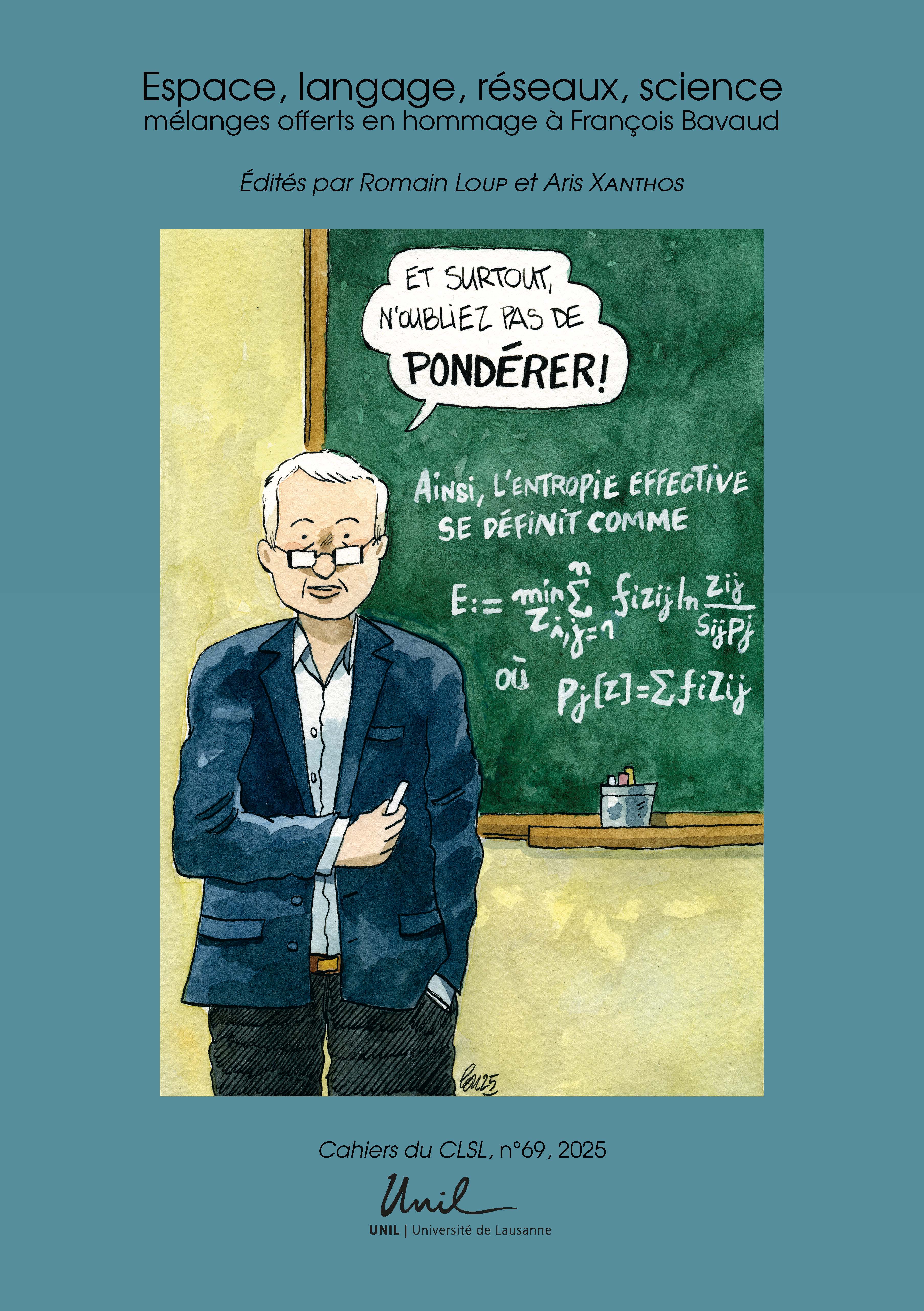Current Issue
This volume brings together fifteen contributions offered in tribute to Professor François Bavaud by his colleagues, former students and friends on the occasion of his retirement. Reflecting the broad spectrum of his scientific interests, the chapters in this collection cover topics ranging from spatial analysis to computational and quantitative linguistics, not forgetting network analysis and its application to (video-)games, the history of mathematical terminology and the epistemology of quantification.
Articles
Depuis 1992, le Centre de linguistique et des sciences du langage (CLSL) publie les Cahiers de linguistique et des sciences du langage (anciennement les Cahiers du D.L.S.L, puis les Cahiers de l'ILSL) à un rythme de deux à quatre publications annuelles environ. Chaque Cahier s’articule autour d'une thématique spécifique des sciences du langage (linguistique historique, plurilinguisme, sociolinguistique, phonologie, analyse du discours, analyse des interactions, humanités numériques et nouvelles technologie, entre autres) et est édité par un ou plusieurs chercheurs du Centre. Les Cahiers ont pour but de promouvoir les travaux des chercheurs débutants et avancés et visent à favoriser l’interdisciplinarité entre les différentes linguistiques représentées au sein du Centre.

